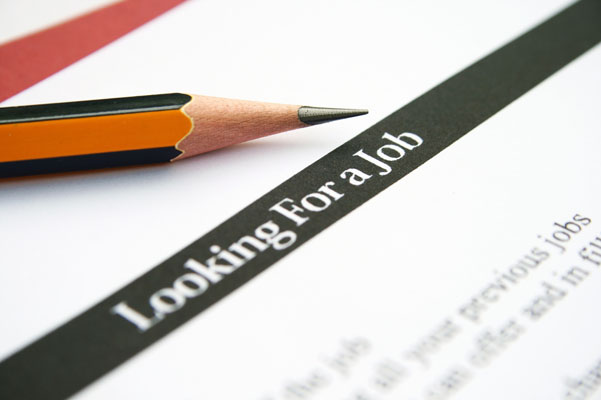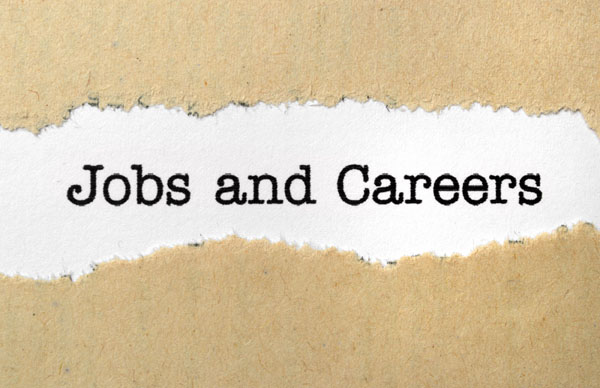Even the best employees lose their jobs.
Often it has nothing to do with your performance so don’t lose your confidence.
Many companies have to downsize because of the challenging economic environment and there is no much you can do about it.
Losing a job after working for the same company for 5, 10 or even 20 years is scary.
It can cause a lot of anxiety and self-doubt especially if you don’t have the emergency fund to keep you afloat until you find a new job.
Our grandparents had one or two jobs during their entire working careers. However, times have changed and nowadays people jump from one job to another every few years.
Some even completely change their careers multiple times over their lifetime.
Sometimes you are forced to find a new job because you got laid off or fired while other times you simply have to move on because your current company is not compensating you fairly or you are simply stuck in a dead-end job where you do the same tasks year after year without learning anything new.
It is important not to freak out if you lose your job and instead focus on things that you can control.
I lost my job two times in the last 10 years and it was quite a learning experience.
What I realized is that losing the job is not the end of the world and there are actually some positives as long as you use your time off between the jobs productively.
19 Steps to Move On After Losing a Job.

1) Get the Most From Your Termination.
In many cases, companies are legally required to pay you some type of lump-sum payment for letting you go. Even if you got fired, you might still be eligible for compensation.
Every situation is different so do your research before signing any release or termination papers.
In some cases, if you feel that you were wrongfully terminated it might be worth talking to a lawyer.
At the very least ensure that you get paid for all your unused vacation or banked days, as well as you, get pay in lieu of notice.
2) Take Care of Your Health Benefits and Retirement Plan.
The next step is to find out what happens to your health insurance and retirement savings account.
You will likely stop getting health benefits as soon as you get fired but it worth checking in case they give you one free month.
In some cases, you might be able to continue with the plan by paying premiums yourself.
Your retirement savings will likely have to be transferred to your personal savings account that you can arrange with your bank.
3) Don’t Burn Bridges With Your Boss and Coworkers.
After getting laid off or fired, it might be tempting to tell your boss to go to hell and make a scene.
However, you should keep in mind that you will require a reference for your next job so try to stay on good terms with your coworkers.
You never know if they might hear about an opening somewhere and may recommend you or they may even invite you back to work for them when it gets busier.
4) Tell Your Friends About Your Situation.
There is no need to keep your layoff a secret from your friends or relatives. Everyone gets laid off so there is nothing to be ashamed because in many cases it is nothing to do with your performance.
First of all, your friends and relatives will provide emotional support and secondly might give you leads for potential job opportunities.
5) Apply for Employment Insurance (EI).
Different countries and states have different regulations when it comes to financial assistance after you lose the job but in most cases, you should be able to get some money that will help you to pay for your daily expenses until you find a new job.
The amount will not be huge but in combination with your emergency fund should make the financial situation less stressful.
6) Calculate Your Monthly Expenses.
It always a good idea to keep a spreadsheet with all your expenses to ensure you are not wasting money. However, after losing a job this is even more important.
Examine every expense and determine if you can eliminate it.
If you cannot eliminate it, see if you can decrease it.
For example, get a roommate, find a cheaper place to get a haircut, stop eating outside, drink at home or cancel your gym and start working out at home.
7) Build a Plan On How Will You Find a New Job.
It is important to have a plan outlining all the steps that you will take to find your new job.
It is pretty easy to lose track of time with all the distractions like Netflix, social media or just oversleeping.
Outline what you will do every day do get closer to your next job.
Realize that some days you will be disappointed and it might feel like you are not making any progress.
Address this is in your plan. How are you going to deal with anxiety and feeling lost?
8) Update Your Resume and Cover Letter.
If you worked for the same company for a few years your resume and cover letter are likely out of date and don’t have all your skills and experiences.
Update both and if possible either hire a professional resume writer to take a look and give you suggestions on how to make your resume more appealing or give it to one of your friends for a second opinion and feedback.
9) Update Your LinkedIn Profile.
If you don’t have a LinkedIn account, create one and add all the people that you know.
A lot of companies are using LinkedIn to post jobs and recruit employees.
Indicate on your profile that you are looking for the job so that people in your network can see it and recommend you if the opportunity presents itself.
Join LinkedIn groups related to your industry and start participating in discussions.
The goal is to let as many people as possible know about your availability and what you can bring to the table.
You don’t have to be desperate but at the same time don’t be afraid to tell people that you are looking for a job.
10) Join Internet Job Boards.
Join a few big internet job boards to keep yourself up to speed on available positions and apply right away.
Some good job sites to join if you are in North America are Indeed, SimplyHired, CareerBuilder or Monster.
You can also apply directly on the company’s’ website by going to the job or current opportunities section.
11) Go to Career Fairs and Networking Events.
Even though applying online by sending resumes works, you can significantly improve your chances of getting a job by talking to people and building your professional network.
You never know who you meet and who can recommend you to their boss so don’t limit your opportunities.
12) Be Prepared for the Interview.
You never know when the opportunity may present itself so be prepared for an interview.
If you haven’t had an interview in the last several years freshen up your skills.
There are a lot of interview tips and resources available online that you can Google.
13) Contact People For Information Interviews.
An informational interview can help you to understand the current job market, get advice from other people and expand your network.
You can either ask for an informational interview by contacting people you know and asking if they can put you in touch with someone interested in doing an informational interview or you can start sending cold emails to people working in your industry.
It is important to be professional and not to put people in an uncomfortable spot by asking them for the job during the informational interview.
I had numerous informational interviews after finishing university and believe it helped my career and allowed me to find my last job.
14) Keep Active and Take Care of Yourself.
It is easy to stop working out and taking good care of your appearance after losing a job.
Keeping active will help you to keep your head clear and prevent depression that is common after losing a job.
Being worried and depressed about losing the job will not help you in finding your new job and will only slow down your job searching progress.
15) Work On Personal Development and Upgrade Your Skills
It is important to use the time off between the jobs to work on your personal development.
You don’t want to waste your free time watching Netflix or playing video games.
Instead focus on taking free courses online, reading or listening to books and find other ways to improve yourself.
16) Work on Your Personal Brand.
Think about yourself as a brand. Look at the ways to showcase your skills and expertise.
When thinking of personal branding most people think of LinkedIn but keep in mind there are many other ways to build your digital footprint and expand your professional network.
Depending on your industry you can use platforms such as YouTube, Instagram, Medium, Facebook and Quora to advertise yourself and your skills.
17) Build Your Personal Website.
If you want to go even deeper with your personal branding, create a personal website where you can showcase your skills and knowledge.
You can link all your posts and articles to your LinkedIn profile so that everyone reading your posts can also visit your profile and join your professional network.
You never know who of those visitors can offer you a job.
Another advantage of having a personal website is that it will show up on Google when someone searches for your name.
This will add credibility and you will come across as an authority in your industry.
In addition, it is better to have your website show up on Google instead of your personal Instagram of Facebook.
18) Look for Opportunities to Make Extra Income While Looking for a Job.
Siting on EI may discourage you from working part-time because the amount you earn will likely decrease your EI payments but you need to start thinking about other ways to make money in case it will take longer than expected to find a job.
There are many offline and online ways to earn some extra income.
19) Start a Business.
This is not for everyone but many people started their businesses either after quitting their job or getting fired.
However, you have to ensure that you don’t spend more money on your business than you can afford.
Not all businesses require a big initial investment.
Some online money-making businesses like starting a blog, YouTube channel, podcast or becoming influencer require less than $100 to start.
However, keep in mind that these types of businesses will require a lot of time and perseverance to be successful but since you have a lot of free time it might be a great way to make some extra money.
Did you know that your internet service provider can track your online activity? Want to hide your identity online and keep your browsing habits private? Try NordVPN!
*This post might contain affiliate links. If you click on a link, I might receive a small commission.

